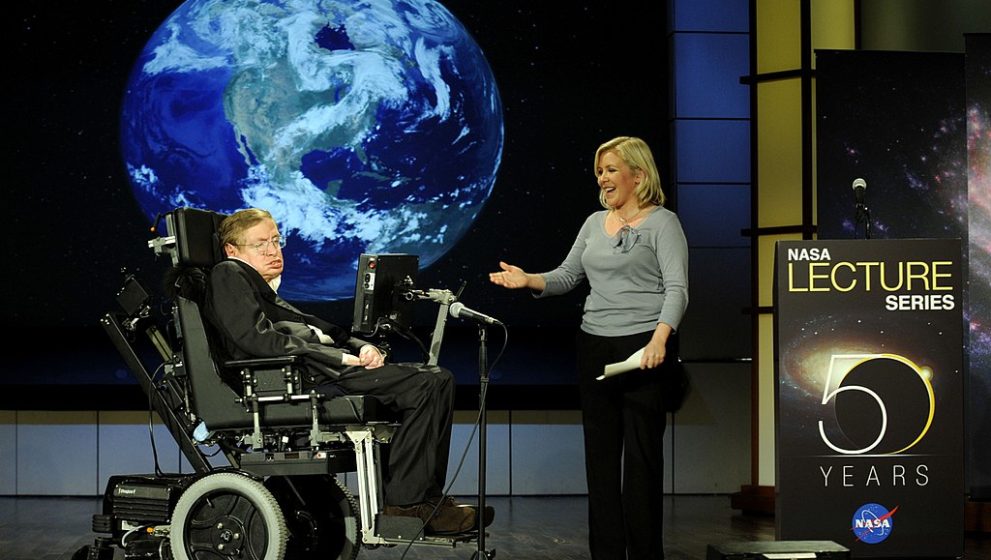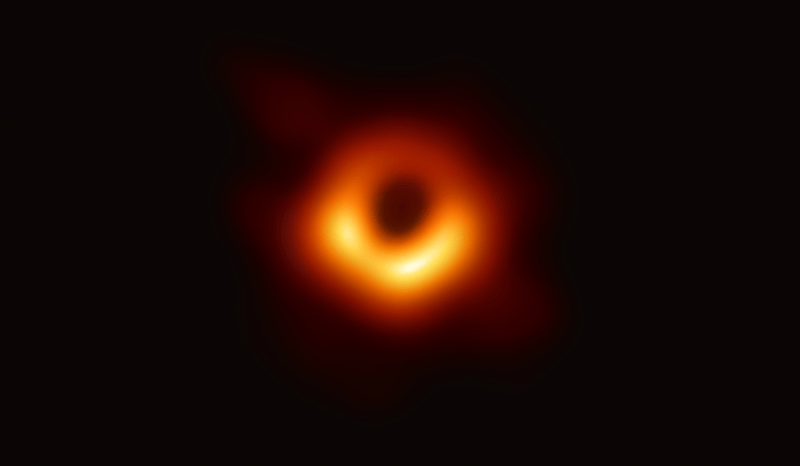Stephen Hawking – 75th birthday lecture

Stephen Hawking being presented by his daughter Lucy Hawking at the lecture he gave for NASA's 50th anniversary in 2008. Photo: NASA/Public domain
It was just as well I hadn’t been a student of Hoyle, because I would have been drawn into defending his steady state theory, a task which would have been harder than denying global warming.
Stephen Hawking
Note: In this episode we have removed the well known pauses between each sentence of Stephen Hawkings speach pattern. This so that you will easier be able to follow his quite complex thought pattern. To let you know how he actually spoke we have kept the very first pause.
This month the world saw a black hole for the very first time, after the idea of supermassive astronomical body like this – with a gravitatonal field so strong that not even light, travelling at 300 000 km/h, can escape it – was first proposed back in 1784! It’s a bit of a tradgedy that after hunting for almost 250 years, the worlds most famous, and extraordinary, black hole scientist would miss this historic event by just one year.

Stephen Hawking had a rare condition named Lou Gehrig’s disease, or ALS. The initial diagnosis, in his first year as a doctoral student, gave him only two more years to live. But although the illness gradually paralyzed his body, he lived for 50 more years, and his mind stayed as sharp as ever.
Before he died, on Einsteins birthday, 14 March 2018, Stephen Hawkings changed the face of theoretical physics, and gave us massive new insigths into, among other things, black holes – even though he sadly never got to see one. That speaks clearly to the power of science.
Hawking was not only a brilliant scientist, he was also a well known and loved science communicator. He wrote books, both for adults and children, held talks, and was depicted countless times in popular media.
In the talk you will hear in this episode of Kurator Hawking celebrated his 75th birthday, just a few monts before his death. He was one of the giants of science that now probably most other theoretical and astrophycisists stands on the shoulders of today, and it is well worth listening to him tell a bit of the story of his life and some of his discoveries.
Please enjoy this talk first held at Cambridge University, and streamed live by Your Discovery Science on July 2nd 2017. If you watch it on their channel you can also see the introductions by Brian Cox, Gabriela Gonzalez and Martin Rees.
Do you want more like this delivered straight to your ear? Please subscribe to the Kurator podcast trough iTunes, TuneIn or just copy and paste our feed URL into your podcatcher of choice.
We love feedback! Give us a rating/review on Apple Podcasts or send us a recommendation for what to feature next.